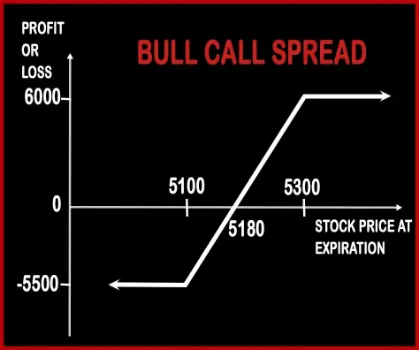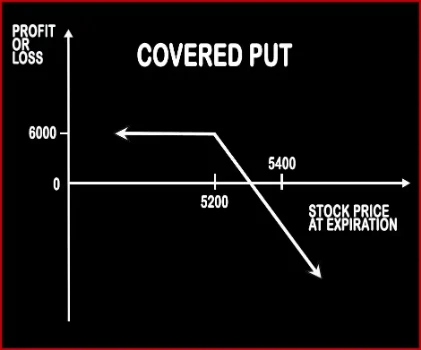Compare Strategies
| BULL CALL SPREAD | COVERED PUT | |
|---|---|---|

|

|
|
| About Strategy |
Bull Call Spread Option StrategyBull Call Spread option trading strategy is used by a trader who is bullish in nature and expects the underlying asset to give decent returns in the near future. This strategy includes buying of an ‘In The Money’ Call Option and selling of ‘Deep Out Of the Money’ Call Option of the same underlying asset and the same expiration date. |
Covered Put Option StrategyThis strategy is exactly opposite to Covered Call Strategy. Here the investor is neutral or moderately bearish in nature and wants to take advantage of the price fall in the near future. The trader will short one lot of stock future. Now the trader will short ATM Put Option, the option strike price will be his exit price. If the prices rally above the strike price, the .. |
BULL CALL SPREAD Vs COVERED PUT - Details
| BULL CALL SPREAD | COVERED PUT | |
|---|---|---|
| Market View | Bullish | Bearish |
| Type (CE/PE) | CE (Call Option) | PE (Put Option) + Underlying |
| Number Of Positions | 2 | 2 |
| Strategy Level | Beginners | Advance |
| Reward Profile | Limited | Limited |
| Risk Profile | Limited | Unlimited |
| Breakeven Point | Strike price of purchased call + net premium paid | Futures Price + Premium Received |
BULL CALL SPREAD Vs COVERED PUT - When & How to use ?
| BULL CALL SPREAD | COVERED PUT | |
|---|---|---|
| Market View | Bullish | Bearish |
| When to use? | This strategy is used when an investor is Bullish in the market but expect the underlying to gain mildly in near future. | The Covered Put works well when the market is moderately Bearish. |
| Action | Buy ITM Call Option, Sell OTM Call Option | Sell Underlying Sell OTM Put Option |
| Breakeven Point | Strike price of purchased call + net premium paid | Futures Price + Premium Received |
BULL CALL SPREAD Vs COVERED PUT - Risk & Reward
| BULL CALL SPREAD | COVERED PUT | |
|---|---|---|
| Maximum Profit Scenario | (Strike Price of Call 1 - Strike Price of Call 2) - Net Premium Paid | The profit happens when the price of the underlying moves above strike price of Short Put. |
| Maximum Loss Scenario | Net Premium Paid | Price of Underlying - Sale Price of Underlying - Premium Received |
| Risk | Limited | Unlimited |
| Reward | Limited | Limited |
BULL CALL SPREAD Vs COVERED PUT - Strategy Pros & Cons
| BULL CALL SPREAD | COVERED PUT | |
|---|---|---|
| Similar Strategies | Collar | Bear Put Spread, Bear Call Spread |
| Disadvantage | • Limited profit potential to the higher strike call sold if the underlying stock price rises. • Maximum profit only if stock rises to the higher of 2 strike prices selected. | • Limited profit, unlimited risk. • Trader should have enough experience before using this strategy. |
| Advantages | • Allows you to reduce risk and cost of your investment. • When placing the spread, exit strategy is pre-determined in advance. • Risk is limited to the net premium paid. | • Investors can book profit when underlying stock price drop, move sideways or rises by a small amount. • Able to generate monthly income. • Able to generate profit from fall in prices or mild increase in the prices. |